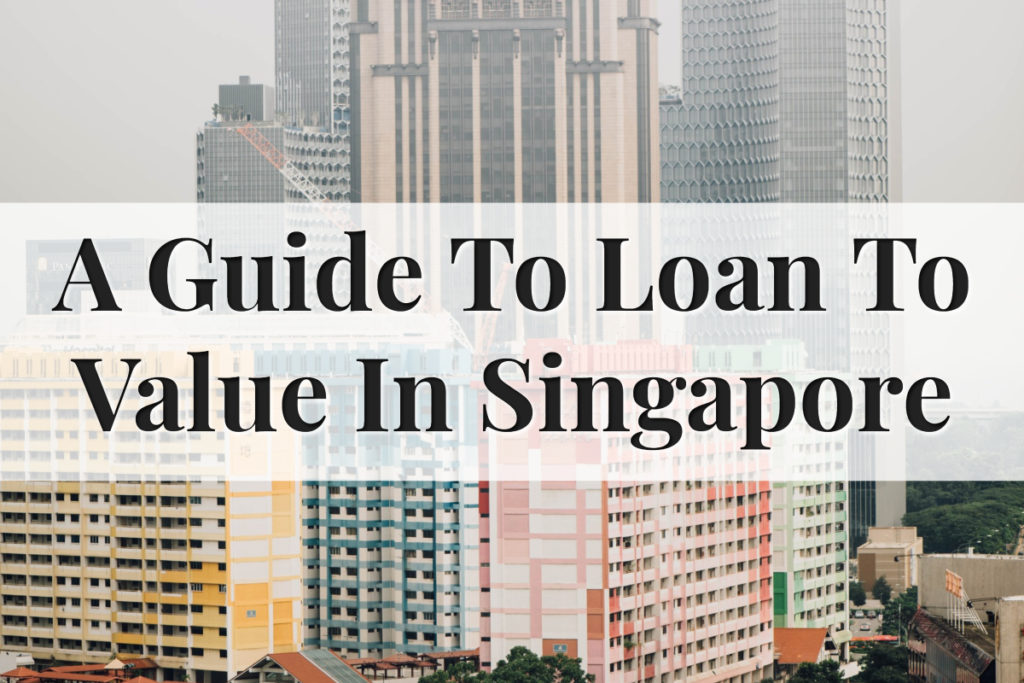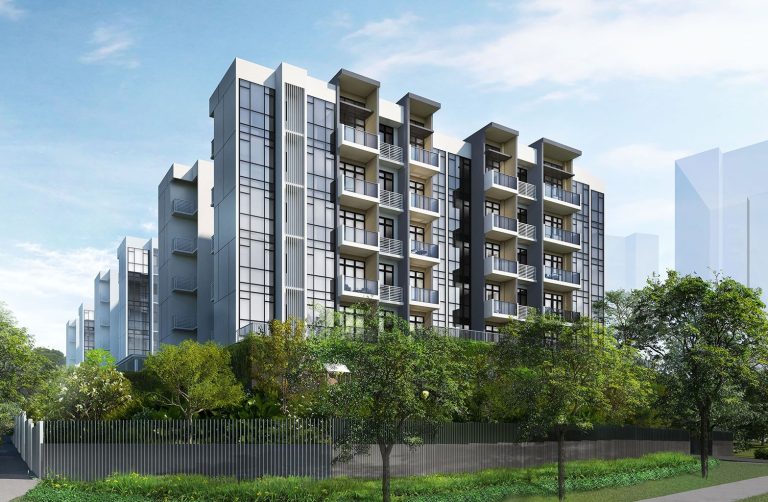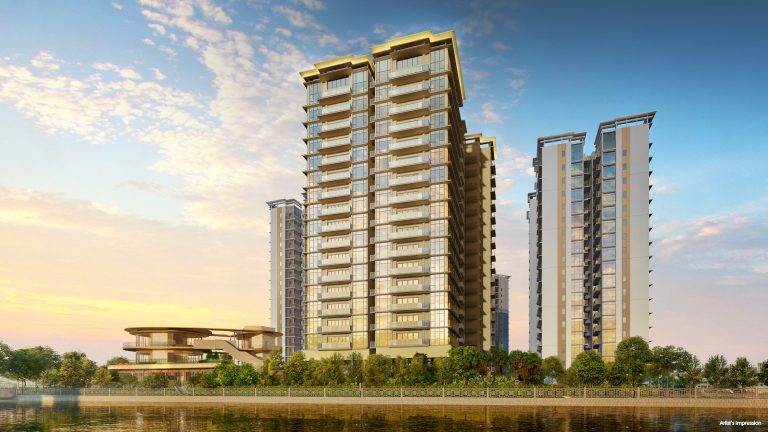A Guide To Loan To Value Singapore

Taking out property loans is the most common way that Singaporeans use to realize their homeownership dreams. However, it’s not possible to borrow whatever amount of funds you need to finance that luxurious home. There’s a limit to the amount of money you can borrow from home loans.
This is known as the Loan-to-Value (LTV) ratio or the maximum Loan Quantum. The Loan to Value ratio Singapore is a limitation that has been enforced by the Monetary Authority of Singapore (MAS) to specify the maximum amount of home loan that people can borrow from traditional lenders, like banks.
The LTV ratio indicates the maximum amount of finances a prospective home buyer can borrow, and thus, how much down payment an individual needs to pay. It is applicable provided you are getting a house loan to buy a home, no matter whether you’re taking out your first or tenth home loan.
Here, you’ll learn more about the LTV meaning and the factors surrounding it, so you can save money on your next property purchase and minimize down payment.

What Is Loan To Value (LTV) Ratio?
As mentioned earlier, Loan to Value (LTV) ratio refers to the amount of money that you can borrow to finance the purchase of your home. For example, an LTV ratio of 90% implies that you’re allowed to borrow a maximum of 90% of your home price or value (whichever is lower).
If a home is priced higher than its market value (valuation), the difference is known as Cash Over Value (COV). The loan to value limit has been put in place to prevent potential property buyers from over-borrowing of home loans. The LTV ratio specifies that the maximum mortgage loan amount a lender can offer a borrower as a percentage of the home’s valuation (i.e. its market value).
According to MAS housing loan rules any new launches (such as new launch condos, new executive condominiums, and HDB flats), the Loan to Value (LTV) ratio always rely on the purchase price. Refinancing options are also available (good examples are the refinancing packages offered by the OCBC). However, prospective home-owners must also adhere to the MAS’s LTV limits and regulations on loan tenor.
If you purchase a resale home and you end up paying more than its current bank value, then you must pay the Cash Over Value (COV) in cash. For instance, if you pay $550,000 for a home valued at $530,000, the Loan to Value (LTV) ratio will apply and you will be obligated to pay the $20,000 in cash.

What Are The Different LTV Ratios In Singapore?
HDB Concessionary Loan
After the recently imposed tightening regulations, the HDB housing loan or HDB Concessionary Loan has a maximum LTV ratio of 90%. This implies that you borrow up to 90 percent of the property value/purchase price and pay the remainder (10%) as a downpayment in cash, from your CPF Ordinary Account (OA). This type of housing loan is available only for ROF, SBF, BTO, and resale property purchases.
Bank Loan
Housing loan from bank has a maximum LTV limit of 75% for the primary lien (if you do not hold other housing loans). For the remaining 25 percent, you must pay a down payment of 5% in cash. The remainder (20%) may be paid using your savings in the CPF-OA account or in cash, or a combination of both.
For mortgage equity withdrawal loans, the LTV limits were tightened from 80% to 70% by the government of Singapore as one of the property cooling measures of 2018 that were designed to cool the real estate market and to maintain price increases within economic fundamentals.

5 Factors Surrounding Loan To Value Limits In Singapore
1. Number Of Housing Loans You Hold
If you have an outstanding loan, the Loan to Value ratio (LTV) of your 2nd property loan is capped at 45 percent. Of the remaining 55 percent, you must pay half of it in cash, and the rest in cash or from your CPF-OA. On the other hand, different provisions may apply for foreigners looking to buy a residential property in the country. Note that this rule applies to your second home loan, and not your second property.
If you hold two housing loans and need to take out a third one, the LTV ratio will be capped at 35 percent. Keep in mind that the LTV ratios mentioned above only apply to mortgages with a loan tenure of up to 30 years. If the mortgage has a tenure longer than that, then the LTV ratio can reduce even further.
2. Your Age
Another factor that determines the borrowing limit is the age of the borrower. If the total or sum of the loan tenure and the borrower extends past 65 years old, then the LTV limit will decrease even further, resulting in a much lower home loan amount offered, which can ultimately increase the costs involved in buying a residential property.
When it comes to joint housing loan borrowers, the average age for income is used. Here’s an example of how to calculate this in relation to a borrower’s ability to pay off the loan.
Given that Borrower 1 = X and Borrower 2 = Y:
The income-weighted average age = (X’s age * X’s monthly salary/ X’s monthly salary + Y’s monthly salary) +(Y’s age * Y’s monthly salary / (X’s monthly salary + Y’s monthly salary)
Since this is a key consideration, older borrowers may be at a disadvantage in comparison with their younger counterparts. That’s why it’s strongly recommended to start young when purchasing a home or investing in the property market in Singapore.
3. Loan Tenure
The maximum loan tenure for private property in Singapore is set at 30 years for flat properties and 35 years for non-HDB residential properties. The HDB maximum loan tenure is capped at 25 years if you’re applying for the loan via HDB.
Keep in mind that the following conditions will lead to a lower LTV ratio limit, which ultimately increases the costs involved in buying a property in Singapore.
- In case the HDB loan tenure extends past 25 years
- In case the loan tenure extends past 30 years for a nonHDB flat.
4. Location And State Of Property
The LTV limit can reduce considerably, depending on the location and the condition of the property. For example, certain properties that are situated overseas or in particularly unappealing places may mean a reduced LTV cap.
In addition, poorly maintained properties with defects, (such as a condo whereby the residents are presently entangled in disputes with property housing developers due to defects) can cause banks and other lenders to grant a lower LTV value[1].

5. Your Credit Score
During the mortgage loan application process, the various lenders will closely scrutinize your credit report. Borrowers with a history of late payments or nonpayment on any housing loan are often considered a credit risk. Lenders may grant you a lower limit home loan than the allowed value. For instance, a financial institution may grant you an LTV of 65 percent as opposed to a maximum of 75 percent.
A history of poor credit (including nonpayment on personal loans or late repayments on your credit cards) can result in a lower LTV. Individuals can check their respective ratings with the CBS. Here, it’s also important to learn how to interpret your rating.
In some scenarios, not having sought credit previously can determine the LTV ceiling. That’s because lenders won’t check one’s record and thus, won’t be able to determine if you’re creditworthy.
One easy way to solve this is to use credit cards as a means of payment for some time. This includes charging purchases and immediately paying it back to ensure there’s no accrued interest. Do that for at least a year before applying for a bank loan for housing purposes.
Keep in mind that a credit score of BB and below is enough to reduce LTV Singapore. Therefore, it is a good idea to start improving this at least a year before making your loan application.
You can achieve this by, for example, avoiding the accumulation of debt, paying back your bank loans or home loans on time, consolidating debts, and closing any lines you no longer use. If you have any questions or need more information about how to build your score, be sure to consult a professional financial advisor.
Conclusion
Loan to Value in Singapore is one of the main criteria your bank and other financial institutions consider when determining whether to approve a home loan. For a lower mortgage rate, it’s advisable to take the necessary steps to ensure a lower LTV cap. A lower LTV ratio will help you save a great deal of money over the course of your home loans.
By considering the above information and factors influencing Loan to Value Limits in Singapore, you can better plan for your property purchase in line with your home loan requirements. Also, make sure to compare housing loan offers in order to get the best interest rate possible.
Property Listings

Our Thoughts On The Arden: Your Buyer’s Guide

Our Thoughts On Dunman Grand Residences: Your Buyer’s Guide

Our Thoughts On Pinetree Hill: Your Buyer’s Guide
Blog Post
Emerald of Katong: Your Ultimate Guide to Upscale Living in Singapore’s Vibrant Heart

What To Do After Buying a Condo

